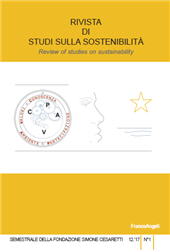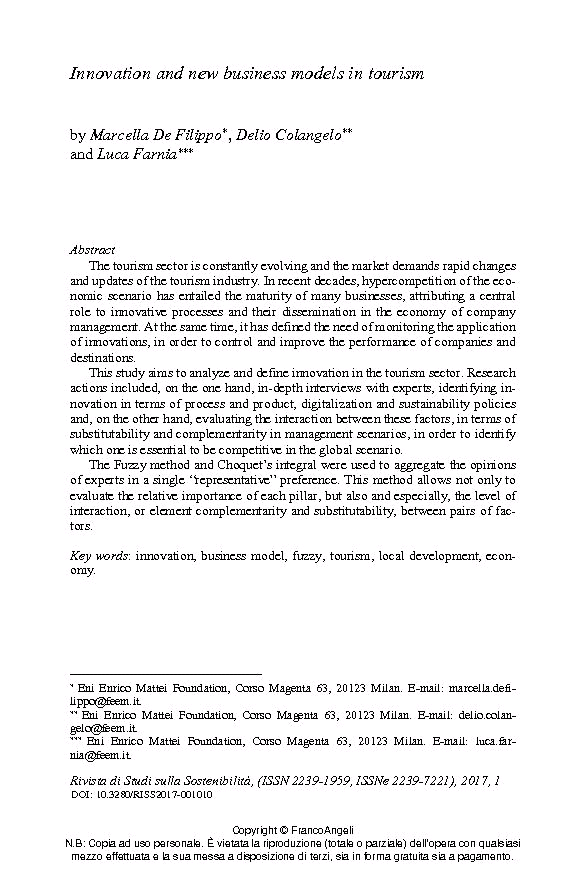Innovation and new business models in tourism
149-168 p.
The tourism sector is constantly evolving and the market demands rapid changes and updates of the tourism industry. In recent decades, hypercompetition of the economic scenario has entailed the maturity of many businesses, attributing a central role to innovative processes and their dissemination in the economy of company management. At the same time, it has defined the need of monitoring the application of innovations, in order to control and improve the performance of companies and destinations. This study aims to analyze and define innovation in the tourism sector. Re-search actions included, on the one hand, indepth interviews with experts, identifying innovation in terms of process and product, digitalization and sustainability policies and, on the other hand, evaluating the interaction between these factors, in terms of substitutability and complementarity in management scenarios, in order to identify which one is essential to be competitive in the global scenario.
The Fuzzy method and Choquet's integral were used to aggregate the opinions of experts in a single "representative" preference. This method allows not only to evaluate the relative importance of each pillar, but also and especially, the level of interaction, or element complementarity and substitutability, between pairs of factors. [Publisher's Text].
Il settore turistico è in costante evoluzione e il mercato richiede mutamenti repentini e aggiornamenti della filiera turistica. L'ipercompetitività dello scenario economico ha, negli ultimi decenni, determinato la maturità di molti business attribuendo ai processi innovativi e alla loro diffusione una centralità evidente nell'economia della gestione aziendale ed ha, al contempo, definito il bisogno di monitorare la comparsa e l'applicazione delle innovazioni, al fine di governare e migliorare le prestazioni delle imprese e delle destinazioni. udio qui presentato ha il duplice obiettivo di analisi e definizione dell'innovazione nel turismo.
Le azioni che sono state messe in campo hanno riguardato, da un lato, alcune approfondite interviste a esperti nel settore identificando l'innovazione in termini di processo e prodotto, digitalizzazione, politiche di rete e sostenibilità aziendale e, dall'altro, di valutare le interazioni tra questi fattori, in termini di sostituibilità e complementarietà negli scenari di gestione, al fine di identificare quelli sui quali è fondamentale investire per competere nello scenario globale. Allo scopo di aggregare le opinioni degli esperti in un'unica preferenza "rappresentativa" sono state utilizzate le misure Fuzzy e l'integrale di Choquet. Con questo metodo si può valutare non solo l'importanza relativa di ciascun pilastro oggetto di analisi, ma anche e soprattutto il grado di interazione, ovvero la complementarietà e sostituibilità degli elementi, tra coppie di fattori. [Testo dell'editore].
Forma parte de
Rivista di studi sulla sostenibilità : VII, 1, 2017-
Artículos del mismo número (disponibles individualmente)
-
Información
Código DOI: 10.3280/RISS2017-001010
ISSN: 2239-1959
KEYWORDS
- Innovazione, modelli di business, fuzzy, turismo, sviluppo locale, economia
- Innovation, business model, fuzzy, tourism, local development, economy



